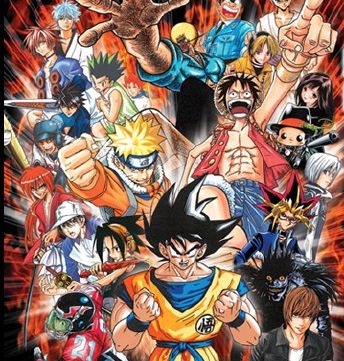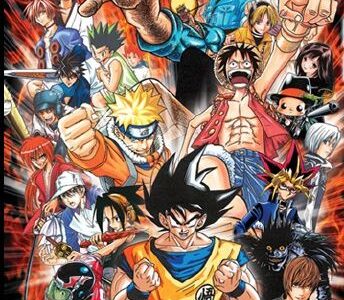The video of Whitney Trettien was very informative because of their openness to giving her opinion of a digital book and its history. Compared to most books with underlining and extensive history, digital books have weird backstories. Interestingly, digital books may look like the future of what books will be recorded and used due to how technology changes. There is a better love for writing paper books rather than staring at a blue screen, which causes you to have sleepless nights. But there is more context to a digital book than the origin of the original text that needs to be added. Most of it is the coloring and expansions upon details we couldn’t understand. Books like manga and comics have come a long way due to digital books because the color scheme in which these books were copied does not live up to its intended selection of books but gives readers a clearer understanding of what’s going on on each page.
Manga and comics books have been well kept in the database of many publications to give a ‘reboot’ meaning to add more detail to provide the once poorly or well-written comic or manga more key visuals and expansion the story a lot more. For example, one manga that came to mind was Bleach. It was done, of course, in black-and-white like how most are usually done. But because there is an extremely high demand for the coloring of this manga, it makes it feel more closely animated to how it will look when it’s televised. Although the black-white color isn’t far off from the beginning digital perspective, the creation of manga and comic books has long gained the development stage of beginning digital books because before the time of computer software, that has dramatically improved the ability to turn a written book digital. I am very excited and thrilled about the various items used for digital bookmaking, and it can be expanded further from just being digital.





Hi kehnide, I am excited to see how you digitalized our final protect I always wanted to get into Magna so I’m looking forward to the information you provide. As this is the early stage of thinking about our projects I think it would be cool to have your project imitate the controls of a comic book such as ho you want readers to scroll etc. Lastly you brought up a valid point about Tritten I think her having examples of the many components of digital book history gave a further understanding. All in all great read .
Hello Kehinde,
I completely agree with you that the history and context for the untraditional “book” like mangas is lacking compared to the codex of books. That’s why I think digital book history is essential especially since we have technologies and methods to properly and effectively preserve histories and cultural events of the more expansive concept of the Book.
Kehinde, it looks like you and Dan might be working on similar projects! For our next blog, you should have a specific primary source (or multiple sources) you wish to create a digital project around — this can include a virtual exhibit, or creating a digital edition, or even focusing on a few moments in the genre’s history, but it should use materials that already have websites dedicated to them. Here’s one place to explore for primary sources: https://guides.library.ucla.edu/c.php?g=1037230&p=7543624
Hi Kehinde,
I love that little science fact that you made about having sleepless nights from staring at blue screens all day, though I imagine that fact wouldn’t be enough to sway most people from opting to read and write paper books. Furthermore, I also agree with your point about colored mangas versus black and white mangas. I would even argue that colored mangas made whatever show, series, brand, I.P., etc. more popular than black and white mangas (similar to how animes brought more attention to the series than mangas) simply because they add more depth and detail (through colors) to the story that are otherwise nonexistent in black and white mangas.